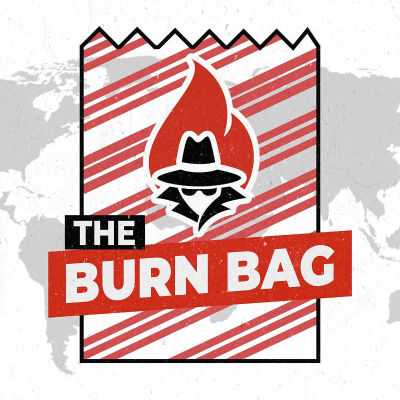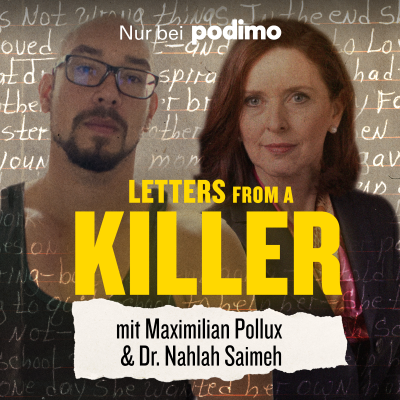
The Burn Bag Podcast
Englisch
Kostenlos bei Podimo
Kostenlos hören bei Podimo
Starte jetzt und verbinde dich mit deinen Lieblingspodcaster*innen
- Vertraut von über 1 Mio. deutschen Hörer*innen
- Über 1.000 lokale Podcasts und Shows – nur bei Podimo
- Keine Zahlung nötig
Mehr The Burn Bag Podcast
We’re here to redefine how scholars and policymakers approach national security and foreign policy. Join us, as we make sense of a world in crisis.
Alle Folgen
352 FolgenVenezuela After Maduro: Democracy or Regime Management? with Tony Frangie Mawad
In Part Two of this conversation on Venezuela, The Burn Bag turns to the present — and the shockwaves following U.S. strikes and the arrest of Nicolás Maduro. Host A’ndre Gonawela is joined again by Tony Frangie Mawad, a Venezuela-based journalist and political scientist, to examine how the United States’ intervention reshaped Venezuela’s political landscape overnight. The conversation explores how power is being reconfigured under interim president Delcy Rodríguez, how Venezuelans are reacting on the ground, and why the removal of Maduro has not meant the collapse of the system he left behind. The episode also unpacks the role of oil, the interests of China and Russia, and the difficult question at the center of this moment: whether Venezuela is headed toward democratic transition, authoritarian stabilization, or something far messier in between. Read Tony's Politico piece, "What I Saw in Venezuela After Trump Seized Maduro," here [https://www.politico.com/news/magazine/2026/01/11/is-it-a-coup-a-week-in-venezuela-after-the-attacks-00721161].
How Venezuela Got Here: Chávez, Maduro, and the Making of an Authoritarian State with Tony Frangie Mawad
In this episode of The Burn Bag, host A’ndre Gonawela is joined by Tony Frangie Mawad, a Venezuela-based journalist and political scientist, to unpack how Venezuela reached its current moment. Long before U.S. strikes and regime collapse, Venezuela’s trajectory was shaped by the rise of Hugo Chávez, the ideology of Chavismo, and the steady erosion of democratic institutions under both Chávez and his successor Nicolás Maduro. Together, they trace how a resource-rich country descended into economic collapse and authoritarian rule — examining the role of oil, populism, repression, and policy choices that reshaped Venezuelan society over two decades. The conversation provides essential historical context for understanding why Venezuela’s political system proved so resilient, and why recent events did not emerge in a vacuum. This is Part One of A'ndre's two-part conversation with Tony on Venezuela. Part Two will examine the U.S. strikes, the arrest of Maduro, and what this turning point means for U.S.–Venezuela relations and the country’s future.
The Nuclear Threshold: Diplomacy, Deterrence, and Disarmament featuring Alexandra Bell
In the final episode of The Nuclear Threshold, A’ndre speaks with Alexandra Bell, President & CEO of the Bulletin of the Atomic Scientists and one of the leading U.S. diplomats behind recent efforts to strengthen arms control and reduce nuclear risks. Building on the technical and command-and-control foundations laid by Laura Grego and Steve Fetter, this conversation shifts to the political and diplomatic fault lines that make today’s nuclear landscape uniquely dangerous. Alexandra explains why nuclear policy has fallen out of public view even as the world edges closer to crisis, and why diplomacy — often undervalued and underfunded — remains the only real mechanism for preventing disaster. Drawing on her experience negotiating the New START Treaty and other engagements, she breaks down the collapse of Cold War–era treaties, the rise of new nuclear states, and the challenge of rebuilding trust in a multipolar world. We also explore how deterrence theory holds up in an era of political volatility and weapons on minutes-notice alert. Alexandra discusses realistic steps the United States and others could take to reduce tensions, the role of scientific cooperation when politics freeze, and why public engagement has always been the catalyst for major progress on nuclear issues. As the Doomsday Clock sits closer to midnight than ever, Alexandra makes the case for “fearless diplomacy” — and why, despite the risks, the path away from catastrophe is still possible if governments and citizens choose it.
The Nuclear Threshold: Who Really Decides on Nuclear Launch? featuring Dr. Steve Fetter
In the second installment of The Nuclear Threshold mini-series, we turn from missile defense to the human side of nuclear risk — the people, protocols, and split-second judgments that determine whether nuclear weapons are ever used. While deterrence is often framed as a stable system, history tells a far messier story: false alarms, malfunctioning sensors, training tapes mistaken for real attacks, and leaders operating under extreme pressure. Our guest, Dr. Steve Fetter — Dean of the Graduate School at the University of Maryland, former Assistant Director in the White House Office of Science and Technology Policy, and member of the Bulletin of the Atomic Scientists’ Science and Security Board — walks us through how nuclear launch authority actually works inside the U.S. system. We explore why the president has sole authority, why that concentration of power is riskier than most Americans realize, and how “launch-on-warning” creates a decision window measured in minutes. Steve breaks down famous near-miss incidents, the vulnerabilities of command-and-control systems, and his proposal to require concurrence from other top officials before any nuclear order is carried out. The conversation is grounded, accessible, and quietly unsettling — a reminder that deterrence relies on human beings who can make mistakes. This episode asks a deceptively simple question with civilization-level implications: How safe is a system that depends on one person getting everything right?
The Nuclear Threshold: Will Missile Defense Systems Really Save Us? featuring Dr. Laura Grego
The Nuclear Threshold is a three-part Burn Bag mini-series exploring how deterrence, defense, and diplomacy shape nuclear risk in the 21st century. Across three conversations with leading experts, we examine why technological optimism often outpaces reality, how fragile human systems sustain deterrence, and whether diplomacy can still prevent catastrophe in an increasingly unstable world. In this first episode, astrophysicist Dr. Laura Grego, Research Director at the Union of Concerned Scientists, joins A’ndre Gonawela to break down the science — and the myths — behind missile defense. Grego explains why the United States’ decades-long effort to build a reliable shield against nuclear attack has repeatedly failed, and how those failures risk deepening global instability. From the early “Star Wars” program to today’s multi-billion-dollar “Golden Dome” initiative, she unpacks the physics that make missile interception nearly impossible, the political incentives that keep these programs alive, and the illusion of safety that drives them. The conversation explores how misplaced faith in technology can push the world closer to, not further from, the nuclear threshold.















































